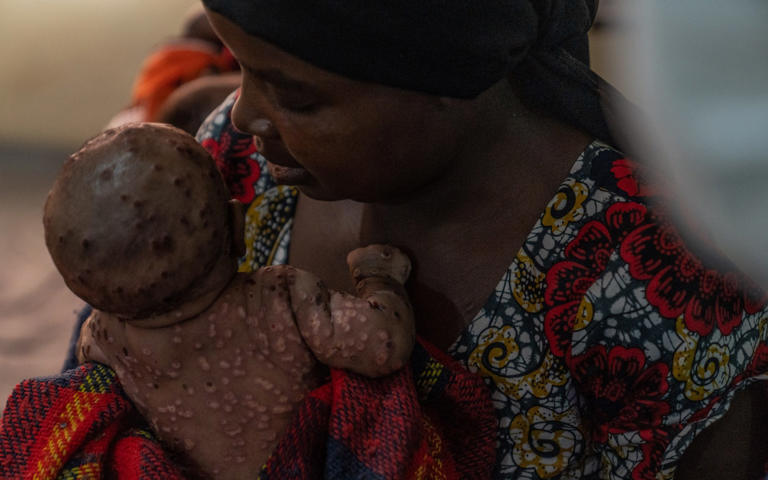In the Democratic Republic of Congo (DRC), a severe shortage of basic medical supplies and poor sanitation conditions are contributing to a deadly surge in child mpox cases. The World Health Organization (WHO) has declared a global health emergency as the virus continues to spread at an alarming rate, fueled by the emergence of a new, more virulent strain known as Clade 1b.
Health officials report that over 15,600 cases have been recorded this year, with children disproportionately affected. So far, 537 child deaths have been reported, highlighting the critical nature of the crisis. The situation in the DRC is particularly dire due to the lack of essential medical supplies, including soap and antibiotics, which are crucial in preventing the spread of the virus and treating those already infected.
Doctors in the region are sounding the alarm, warning that the acute shortage of supplies is hampering efforts to treat patients and contain the outbreak. Dr. Nathalie Strub-Wourgaft, a representative from the Pandemic Preparedness Platform, described the conditions on the ground as harsh, noting that even the most basic items for treatment are in short supply.
The crisis is exacerbated by the presence of the highly contagious Clade 1 strain of mpox, with the new Clade 1b variant further complicating efforts to control the virus. This mutation has not only increased transmission rates within the DRC but is also spreading across East and Central Africa, raising concerns about a wider regional epidemic.
In a recent study, researchers found that while new antiviral drugs like tecovirimat are being tested, they have yet to significantly reduce the duration of mpox lesions. Nevertheless, proper hospital care has been shown to reduce mortality rates, emphasizing the need for improved healthcare infrastructure and resources.
Global health officials are calling for immediate international assistance to help manage the outbreak and prevent further loss of life. The WHO has identified a need for $87 million to fund essential activities to combat the virus, stressing the urgency of the situation.
As the outbreak continues to unfold, the world watches with growing concern, underscoring the critical importance of a coordinated global response to this escalating health crisis.



